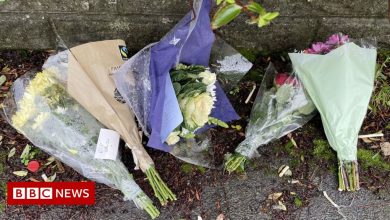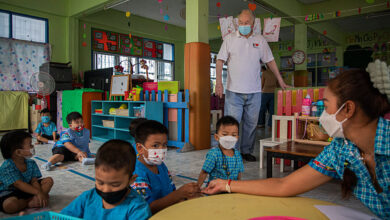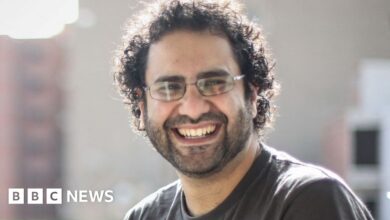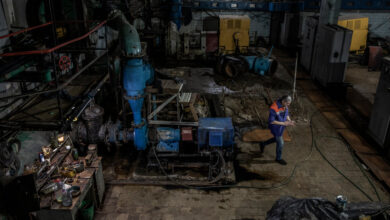INTERVIEW: Sustainable energy brings ‘hope’ in the fight against desertification and land loss
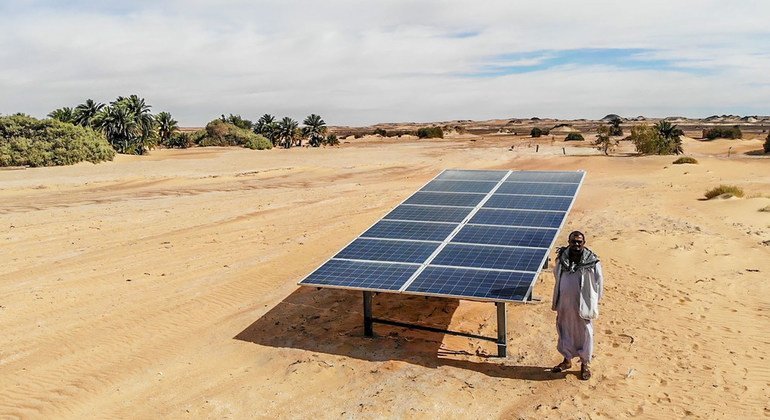
Mr. Thiaw spoke to UN News before the meeting World Day to Combat Desertification and Droughtmarked every year on June 17
Ibrahim Thiaw: Desertification is happening at the local level as well as globally. Unless we tackle this problem at the local level, we will never be able to truly control it at the global level. Global policies and global decisions are needed.
The implications are huge in terms of food security and food sovereignty.
It also promotes forced migration. If people can no longer produce food on their own land, they will migrate. As we have seen for example in the Sahel or Haiti, there can be serious consequences for global security. When people compete for access to land and water, it leads to more conflicts. We are seeing this more and more and it has consequences for the integrity of communities and national economies.

UNCCD Executive Secretary Ibrahim Thiaw visited the Aral Sea in Uzbekistan, which is affected by drought.
It is estimated that up to 50% of global GDP could be lost by 2050 due to challenges in agriculture and food production unless we tackle land loss and desertification.
United Nations News: What is the current trend of land loss?
Ibrahim Thiaw: Soil loss is occurring worldwide and land degradation is affecting both arid and less arid lands.
But in terms of drylands and desertification, it is estimated that 45% of the land surface is affected by desertification. It’s perhaps more remarkable to say that 3.2 billion people or a third of the world’s population are affected by it.
Every year, hundreds of millions of hectares of land are degraded, an area the size of Egypt. We need to stop land degradation, but we also need to restore 1.5 billion hectares of land.
United Nations News: How will you do it?
Ibrahim Thiaw: By improving agricultural techniques, reduce the impact we are having on the land through mining and other extractive industries. It is also important that we reduce the pressure on people’s activities in some parts of the world to diversify the economy and create more income-generating opportunities.

Two men plant trees during an afforestation initiative in the coastal regions of Bangladesh.
Restoring degraded land is not an expensive activity, but it is absolutely necessary to ensure greater food security and reduce conflict. Every dollar invested in land restoration can generate economic benefits of up to $30, so investing in restoration activities is quite profitable from an economic standpoint.
This is not only the responsibility of local communities but also of governments and especially of the private sector because the largest driver of land use in the world is large-scale agriculture.
UN News: Are we talking mainly about small developing countries?
Ibrahim Thiaw: Are not. It is a global phenomenon that is affecting all countries including the United States, India, China, India or Pakistan.
But the impact is much more severe in small countries and small economies that have neither reserves nor insurance systems to protect their people. And the level of vulnerability is much higher in communities whose revenue base is based solely on the income they can generate from the land.
UN News Desertification does not exist in isolation. How does it relate to climate change?
Ibrahim Thiaw: Desertification is an amplifier of climate change. Climate change is an amplifier of desertification because of course, with extreme events, you also have severe impacts on land, communities and local economies.

Many migrants, like those in Djibouti, are leaving their homeland because they can no longer live away from it.
So, essentially, they interact with each other and therefore it is important to have a more comprehensive global picture. It’s a mistake to think you can protect biodiversity or land without addressing climate, and vice versa.
United Nations News: Small-scale interventions at the local level are important, but it seems like it will take a huge push from government, from the private sector to make a real difference?
Ibrahim Thiaw: Yes, we should not throw away all the efforts that local communities are making day in and day out. They need more support from the government. They also need to reduce subsidies to the agricultural sector, which is destroying the environment. Public money that, in some cases, is destroying the environment should be used to actually rebuild the economy.
So it’s not necessarily that we need to inject more money, but we need to spend the money we have in a better way.
UN News: I guess some people would say that’s a pretty optimistic view that governments are going to change the way they spend money?
Ibrahim Thiaw: Oh, no, it makes political sense. As a taxpayer, I want to know where my money is going. If it is invested in activities that are destroying my environment and creating ecological concerns for my children, destroying the livelihoods of my community, then as a voter I will insist that my government should invest its money in other areas that will generate more. income for me and create more sustainability.
United Nations News: You are from Mauritania in the Sahel. Have you seen this land degradation happen in real time?
Ibrahim Thiaw: The situation is very sad. I have witnessed land degradation in my lifetime. But at the same time, I also have a lot of hope because I see positive changes coming. I see the younger generation waking up to the fact that they need to reverse this trend.
I see many farmers and ranchers trying to do their part. I see more intervention from the international community, including from the humanitarian world investing in land restoration. So I see a movement that gives me some hope that if we put our efforts together and work in a collaborative way, we can actually reverse this trend.
And my biggest hope is energy, which is the missing link for development and for small and medium-sized enterprises. Energy is now accessible in remote places thanks to the ability to harness solar and wind power.
And the possibility of combining energy and agriculture is very positive, when you can harvest water, store food, reduce food loss. You can process that food to create a chain at the local level.
